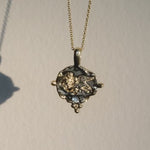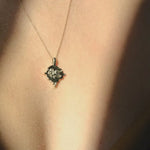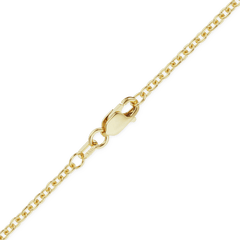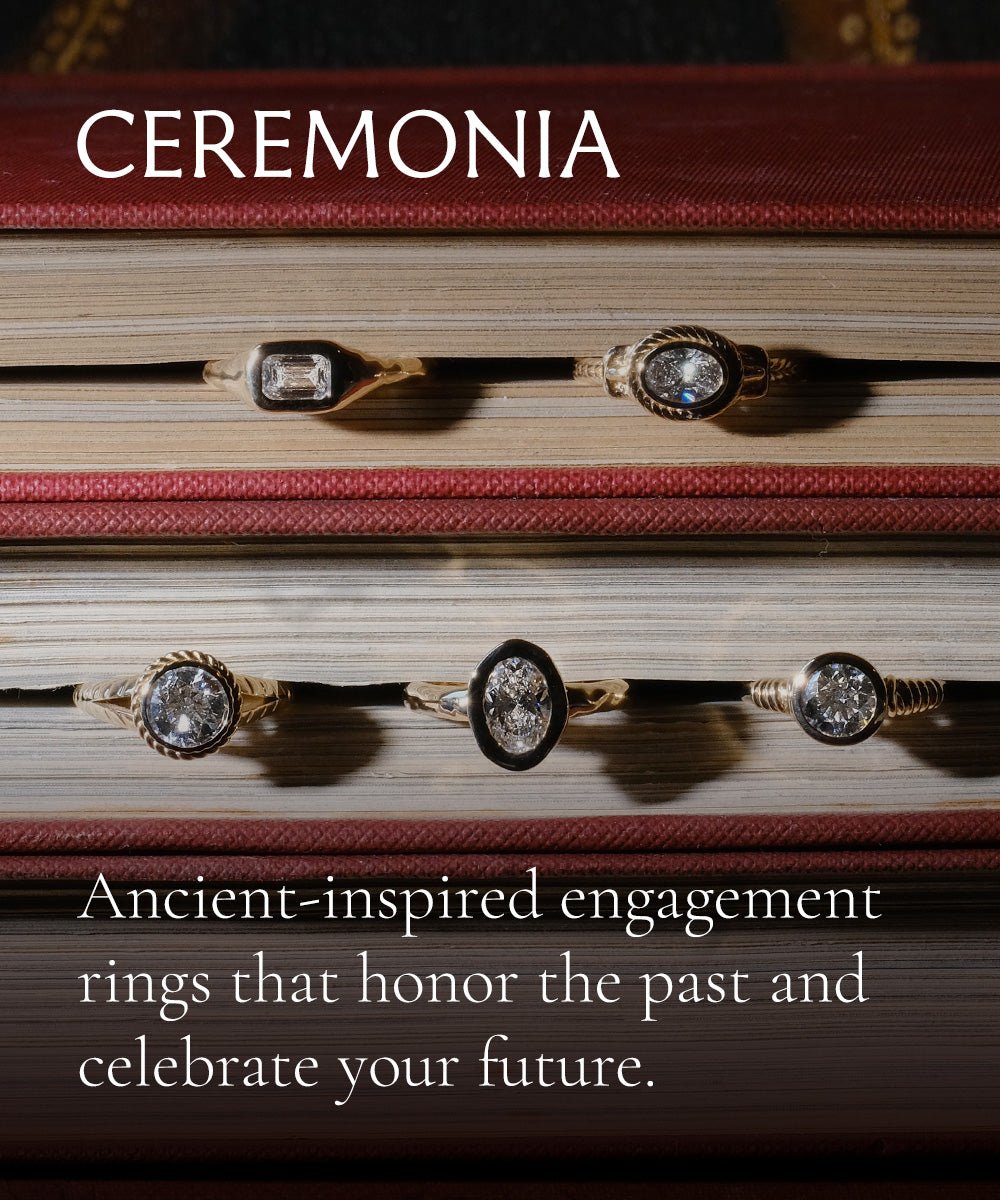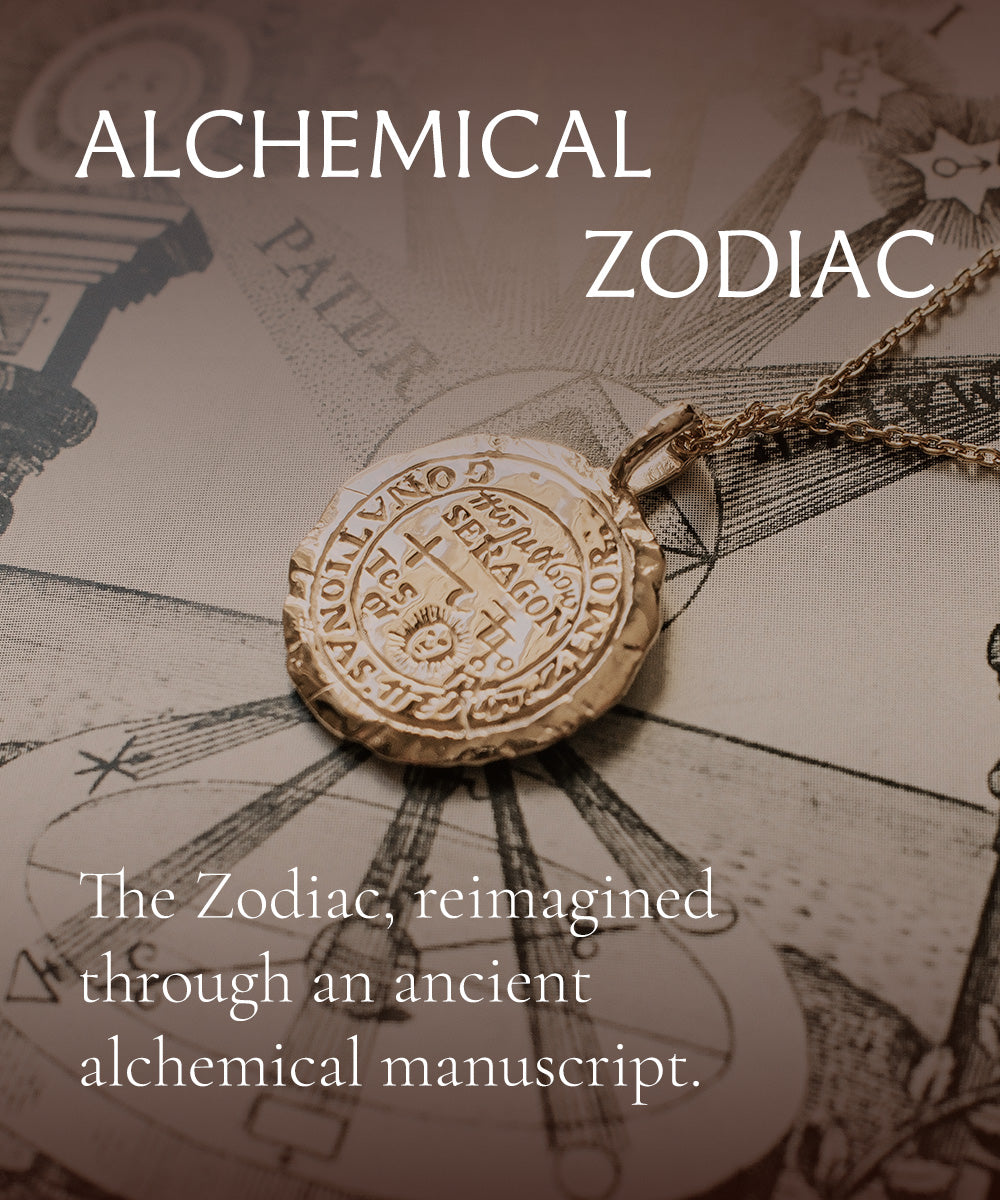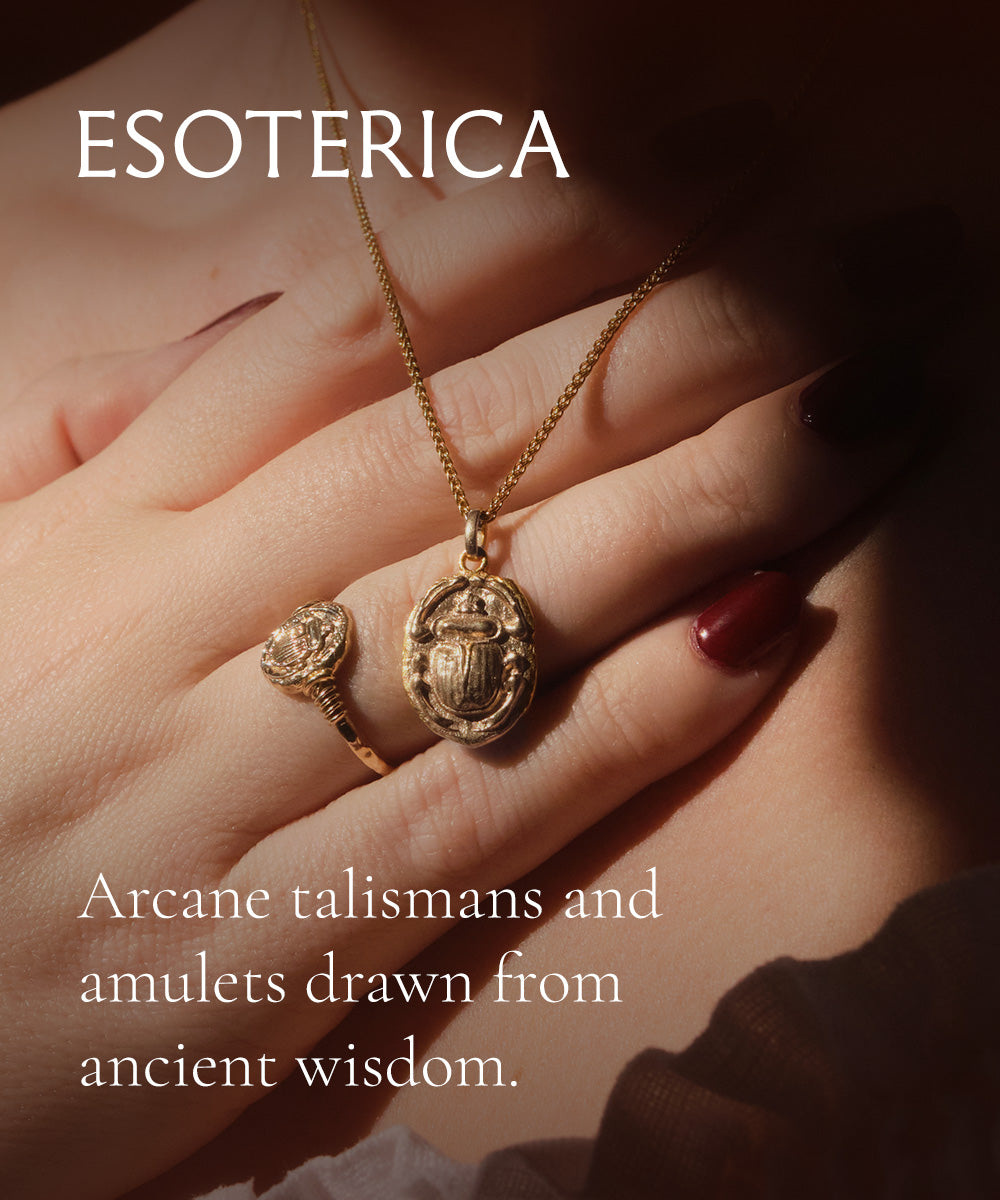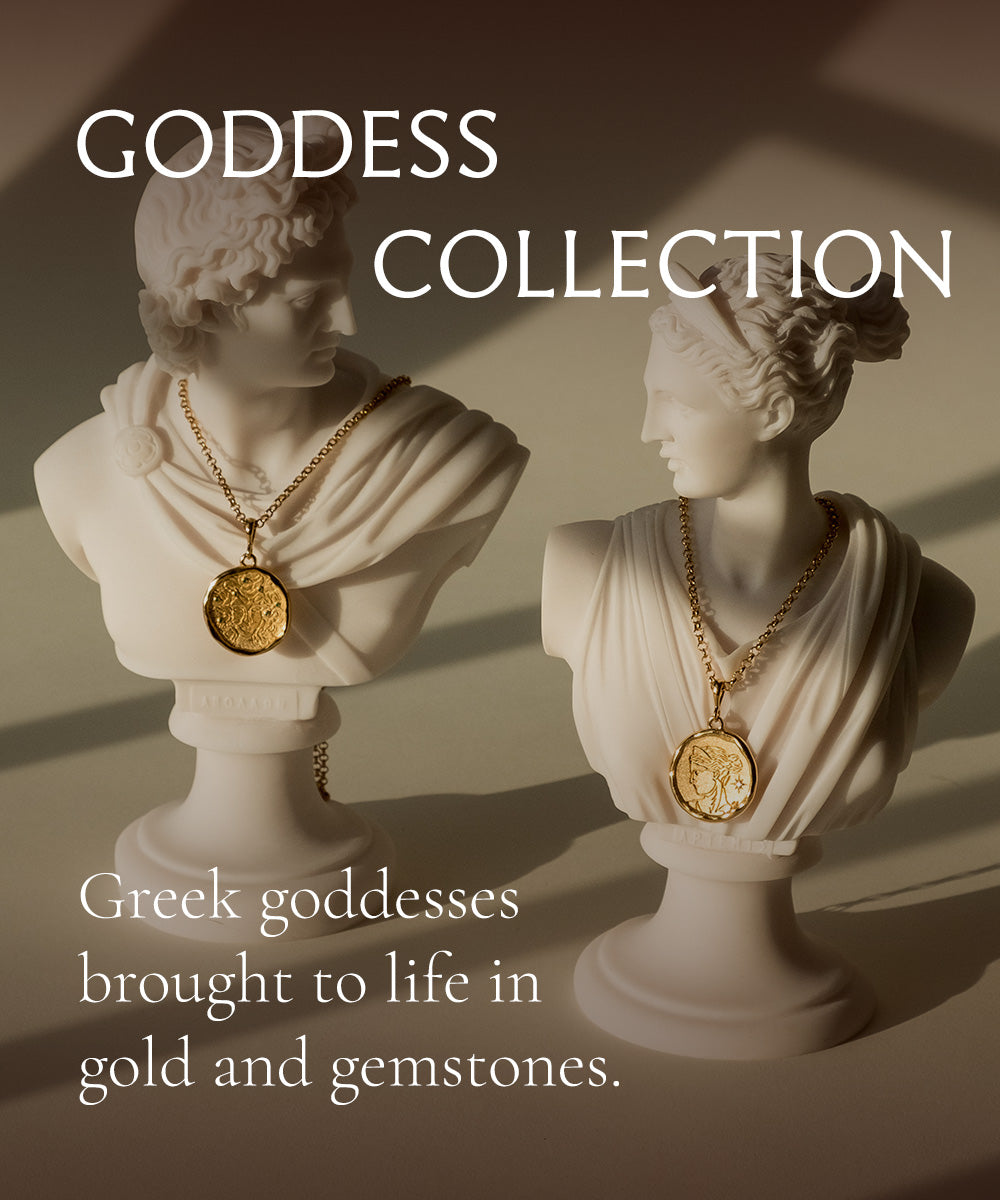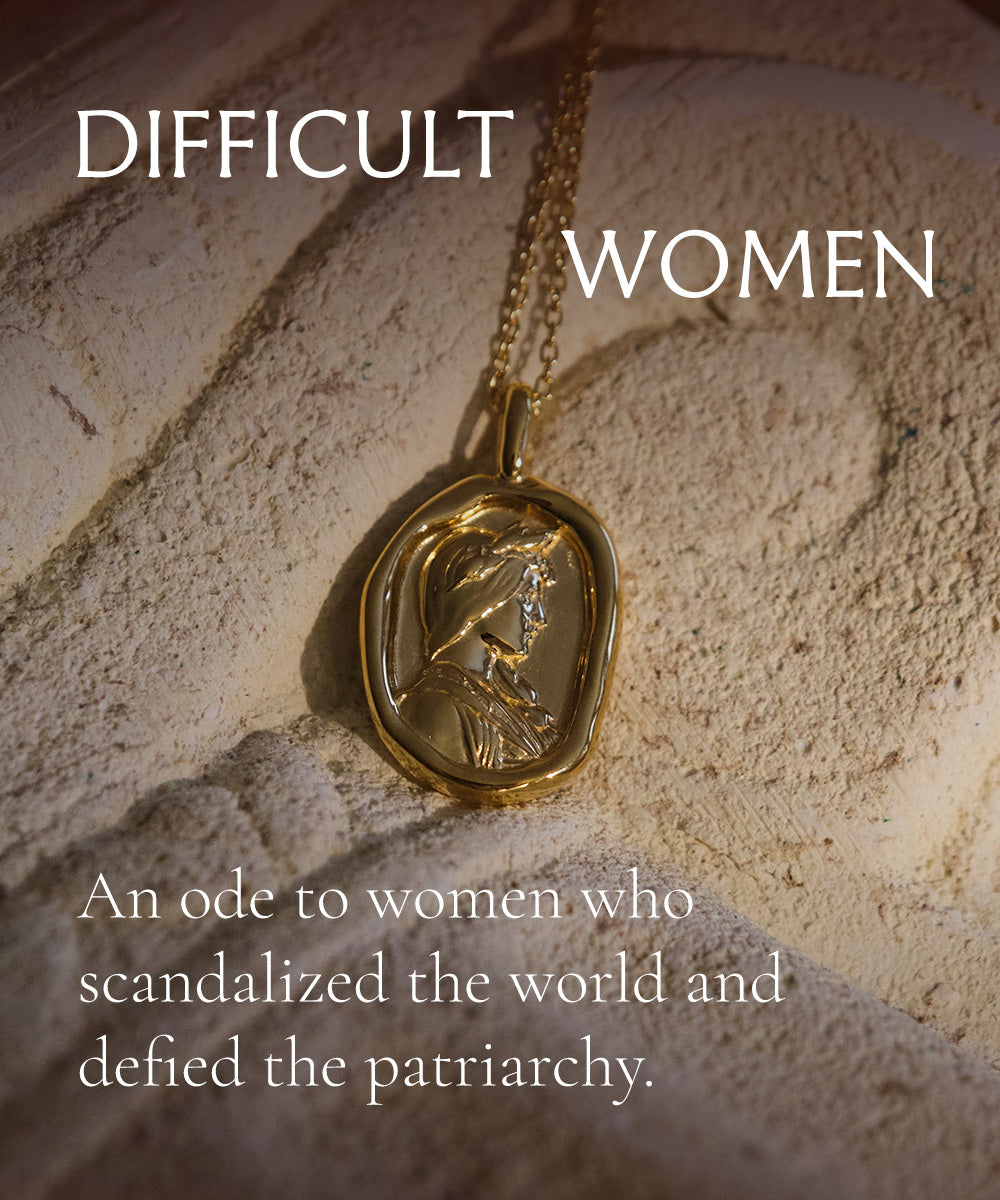



























Leda and the Swan Pendant
Complete the look:
Free global shipping
100% recycled solid gold
Handcrafted in New York
Fairly made, fairly priced
Common Era's pieces are always inspired by my travels, my love of history and classical mythology. I visited the ruins of Pompeii on my honeymoon in 2021 and became entranced by the newly unearthed fresco of Leda and the Swan found in a home on Regio V (pictured in the slideshow).
The fresco is unique in that it shows Leda differently than she has been previously depicted, Pompeii's chief archeologist Massimo Osanna said, "It sends a message of sensuality. It means, 'I am looking at you and you are looking at me while I am doing something very, very special. It is very explicit. Look at her naked leg, the luxurious sandal; it is a message of beauty and also a message of sensuality."
Leda's story, like that of many women in classical antiquity, is one of objectification in a patriarchal society. She was the queen of Sparta when Zeus, king of the gods, spied her from afar and fell in love. He transformed himself into a swan and, depending on which source we examine, either raped or seduced Leda in this form. She also lay with her husband the king that same evening and went on to lay two eggs, from which hatched Helen of Troy, Clytemnestra, Castor and Pollux.
Like all myths, Leda's story has been interpreted and reexamined over the centuries. As modern viewers, we are able to focus our own lens upon her. The fresco found in Pompeii depicts Leda as an active participant, cuckolding her husband, defiantly staring down the viewer. We choose to honor her in this way, as a woman in the throes of ecstasy, lust and passion.
Why Solid Gold ✨
Solid gold is for those who buy once and buy well. It will not tarnish, fade, or degrade; worn daily for decades, it only grows more beautiful. It is the right choice if you want a piece that lasts a lifetime or becomes an heirloom.
Gold has appreciated steadily for centuries and retains intrinsic value: it can always be melted down and reborn as something new. It is adornment that is also an investment.
Our solid gold pieces are cast using the ancient lost wax method and are never hollow. Every gram is 100% certified recycled, and every piece is made by hand in New York City.
Product Details 🔍
Metal:
100% recycled solid yellow, white, or rose gold
Pendant Dimensions:
16mm x 16mm (excluding bail)
3mm thick
When will my piece ship? 🚚
Production time: 2 - 3 weeks
Most solid gold is handcrafted to order.
We keep a small inventory of solid gold pieces - please check just above the size/color selector to see if your piece is in stock.
If not, please refer to the above production timeframe.
- Related products
- Recently viewed
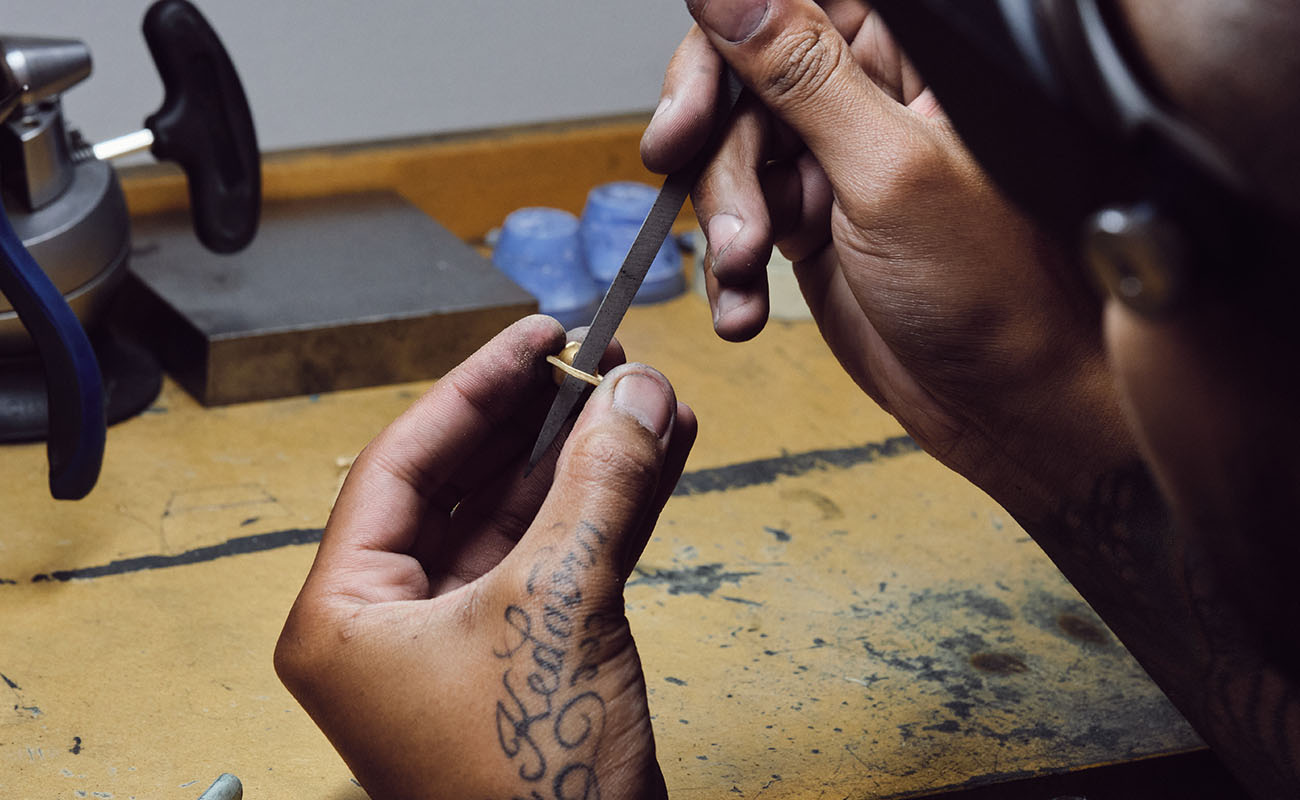
How We Price Our Gold Jewelry
People are always curious about how jewelry companies price their pieces - how can that tiny little piece be worth $3000? I was one of those skeptical people until I founded...







